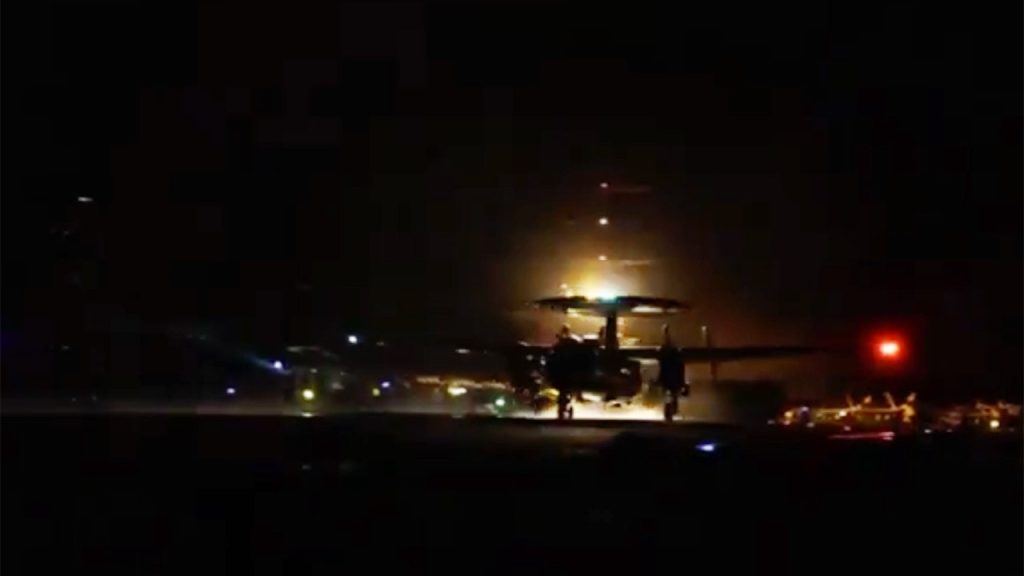The United States military carried out precision airstrikes in Yemen targeting Houthi rebel infrastructure, specifically a missile storage facility and a command-and-control center. These actions, confirmed by U.S. Central Command (CENTCOM), were strategically designed to disrupt and degrade the Houthis’ operational capabilities, particularly their ability to launch attacks against U.S. naval vessels and commercial shipping traversing the Southern Red Sea, the Bab al-Mandeb Strait, and the Gulf of Aden. The strikes underscore the U.S. commitment to safeguarding its personnel, coalition partners, regional allies, and the freedom of navigation in these crucial waterways. This military intervention comes amidst escalating tensions in the region fueled by the ongoing conflict between Israel and Hamas, with the Houthis, backed by Iran, playing a disruptive role by targeting maritime traffic.
The decision to conduct airstrikes marks a significant escalation in U.S. involvement in the Yemen conflict, though the U.S. has maintained a consistent presence in the region, primarily focused on counterterrorism operations against al-Qaeda in the Arabian Peninsula (AQAP). While the U.S. has provided intelligence support and logistical assistance to the Saudi-led coalition fighting the Houthis in Yemen, direct military action against the Houthis themselves has been relatively limited in recent years. This latest intervention signals a renewed focus on addressing the Houthi threat, particularly their increasing maritime aggression, which directly impacts international trade and security.
The Houthi rebels, who control large swaths of Yemen, including the capital Sana’a, have intensified their attacks on shipping in the Red Sea and Gulf of Aden since the outbreak of the Israel-Hamas war in October 2023. These attacks have primarily targeted merchant vessels and oil tankers, disrupting vital supply chains and raising concerns about regional stability. The Houthis claim their actions are in solidarity with the Palestinian cause and aimed at pressuring Israel to end its operations in Gaza. However, these maritime attacks pose a significant threat to international trade and navigation, further destabilizing an already volatile region.
The U.S. airstrikes are likely to draw criticism from various quarters, both domestically and internationally. Some may argue that direct military intervention could further escalate the conflict in Yemen, potentially leading to unintended consequences. Others might express concerns about the potential for civilian casualties and the impact on the already dire humanitarian situation in the country. The timing of the strikes, amidst the escalating Israel-Hamas conflict, could also add fuel to regional tensions, potentially drawing other actors into the conflict.
The international community’s response to the U.S. airstrikes remains to be seen. While some countries may express support for the U.S. actions, citing the need to protect freedom of navigation and address the Houthi threat, others may criticize the intervention, advocating for a diplomatic solution to the Yemen conflict. The complex geopolitical dynamics of the region, involving various regional and international actors with competing interests, make it challenging to predict the long-term implications of the U.S. airstrikes.
Moving forward, the situation in Yemen requires a multifaceted approach that addresses both the immediate security concerns and the underlying political and humanitarian crisis. Efforts to de-escalate the conflict, promote dialogue between warring parties, and address the root causes of the conflict are crucial for achieving lasting peace and stability in Yemen. The international community must work together to provide humanitarian assistance to the Yemeni people, who have been suffering immensely from years of conflict and displacement. A comprehensive strategy that combines diplomatic efforts, humanitarian aid, and targeted security measures is essential to address the complex challenges facing Yemen and prevent further escalation of the conflict.

